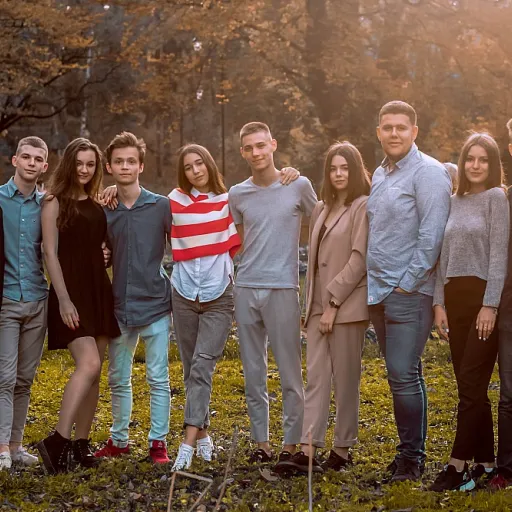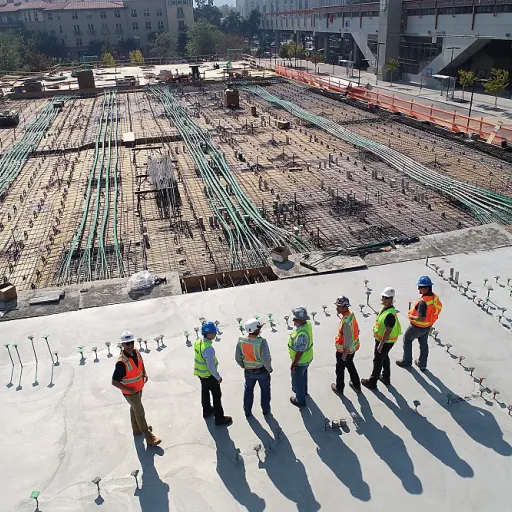
What is the 37f mos and why does it matter?
The Role of 37F MOS in Modern Military Operations
The 37F MOS, known as Psychological Operations Specialist, is a critical position within the United States Army. These specialists are responsible for influencing target audiences, supporting tactical and strategic missions, and conducting responsible analysis to shape the information environment. Their work directly impacts the success of military operations and the safety of soldiers on the ground.
Why 37F MOS Skills Matter for Army and Civilian Careers
Psychological operations require a unique blend of skills, including the ability to conduct analysis, develop products, and support both combat and non-combat missions. Army MOS 37F specialists must work closely with teams, operate specialized equipment, and adapt to rapidly changing situations. The skills learned in this field are not only vital for active duty soldiers but also translate well to civilian jobs, especially in areas like intelligence, analysis, and operations support.
- Training for 37F MOS includes basic combat training, advanced technical instruction, and ongoing learning to keep up with evolving tactics.
- Specialists are expected to demonstrate strong communication, critical thinking, and adaptability in high-pressure environments.
- Army special operations and psyop specialists often collaborate with other units, making teamwork and leadership essential skills.
Understanding the skills gap in this field is crucial for anyone considering a career as a 37F MOS or looking to support military intelligence operations. For those interested in how to prepare for a role in this area, learning about the screening interview process is a valuable first step in bridging the skills gap and ensuring readiness for both military and civilian opportunities.
Key skills required for the 37f mos
Essential Abilities for Psychological Operations Specialists
The 37F MOS, known as Psychological Operations Specialist, is a unique role in the United States Army. Soldiers in this field are responsible for influencing target audiences, supporting tactical and strategic missions, and providing critical analysis to commanders. To succeed, these specialists need a blend of technical, analytical, and interpersonal skills that go beyond basic combat training.
- Analytical Thinking: The ability to conduct responsible analysis is fundamental. Operations specialists must interpret complex information, assess psychological factors, and understand the motivations of both allies and adversaries.
- Communication Skills: Effective communication is crucial for delivering persuasive messages and supporting team operations. This includes both verbal and written skills, as well as the ability to adapt messages for different audiences.
- Cultural Awareness: Understanding the cultural context of operations is vital. Army MOS 37F specialists often work in diverse environments, requiring sensitivity to local customs and beliefs.
- Teamwork and Leadership: Whether supporting active duty soldiers or collaborating with civilian partners, the ability to work within a team and demonstrate leadership is essential.
- Technical Proficiency: Familiarity with military equipment, digital products, and intelligence tools is necessary. Training for this MOS includes learning to use specialized software and hardware for psychological operations.
- Adaptability: The field of military intelligence evolves rapidly. Psyop specialists must be able to learn new skills and adapt to changing operational requirements.
Training for the 37F MOS covers both classroom instruction and hands-on experience. Soldiers learn skills related to psychological operations, intelligence gathering, and tactical support. This training prepares them for a range of duties, from planning missions to analyzing the effectiveness of psychological campaigns.
For those considering a transition to civilian jobs, the skills gained in this MOS—such as analysis, communication, and leadership—are highly valued. Many employers recognize the unique training and experience that army special operations provide. For a deeper look at how education can unlock pathways to success and help bridge the skills gap, explore how education unlocks pathways to success in bridging the skills gap.
As the demands of military intelligence continue to evolve, ongoing training and a commitment to learning remain central to success for both duty soldiers and those preparing for civilian careers. Privacy policy considerations are also increasingly important, especially when handling sensitive information and supporting operations across different environments.
Common skills gaps in the 37f mos field
Where Skills Gaps Commonly Appear in 37F MOS
The 37F MOS, also known as the Psychological Operations Specialist, is a critical role in the United States Army. These soldiers are responsible for influencing target audiences, supporting tactical and strategic operations, and providing responsible analysis to commanders. However, even with rigorous training, certain skills gaps frequently emerge in this field.
- Advanced Analysis Skills: While basic training covers foundational analysis, many soldiers find it challenging to apply advanced analytical techniques in complex, real-world scenarios. The ability to conduct nuanced intelligence analysis is essential for effective psychological operations.
- Technical Proficiency with Equipment: The use of specialized products and equipment in psychological operations requires ongoing training. Gaps often appear when soldiers transition from training environments to active duty, where equipment and software may differ or evolve rapidly.
- Team Coordination and Communication: Operations specialists must work seamlessly within diverse teams. Skills gaps can arise in cross-functional collaboration, especially when integrating with other army MOS or special operations units. Effective support and communication are vital for mission success.
- Understanding Civilian Applications: Many 37F specialists struggle to translate their military skills to civilian jobs. Bridging the gap between military intelligence and civilian analysis or support roles is a recurring challenge.
- Adapting to Evolving Threats: The psychological landscape of modern conflict is constantly changing. Soldiers must continually learn new skills and adapt their training to address emerging threats and technologies.
These skills gaps can impact both the effectiveness of psychological operations and the career progression of duty soldiers. Addressing them requires targeted training, ongoing support, and a commitment to continuous learning. For those interested in how collaboration and tracking can help bridge these gaps, exploring effective collaboration tracking offers valuable insights relevant to both military and civilian contexts.
Strategies to overcome skills gaps in military intelligence
Practical Approaches to Building Competence in Military Intelligence
Bridging the skills gap for the 37F MOS—Psychological Operations Specialist—requires a focused, multi-layered approach. The army invests heavily in training, but gaps can still appear between what is taught and the real-world demands of operations. Addressing these gaps is essential for both mission success and the professional growth of soldiers.- Continuous Training and Learning: The army provides initial training, but ongoing education is crucial. Soldiers are encouraged to participate in advanced courses and simulation exercises that mirror real tactical and psychological operations. This helps them learn skills that are directly applicable to their daily responsibilities.
- Mentorship and Team Collaboration: Working closely with experienced psyop specialists and intelligence professionals allows new team members to gain practical insights. Mentorship programs foster knowledge transfer, helping soldiers understand the nuances of responsible analysis and effective support in operations.
- Cross-Training and Civilian Integration: Exposure to different roles within the army MOS structure, including special operations and intelligence analysis, broadens a soldier’s perspective. Some units also collaborate with civilian experts, especially in areas like psychological analysis and target audience research, to bridge gaps that military-only training might miss.
- Utilizing Modern Equipment and Technology: Staying updated with the latest products and equipment is vital. Regular hands-on training with new tactical tools ensures that soldiers are ready for evolving operational requirements.
- Feedback and Assessment: Structured feedback from superiors and peers helps identify areas where additional support or training is needed. After-action reviews and performance assessments are standard practices to ensure continuous improvement.
Army Support Systems and Resources
The United States Army has established a range of support systems to help soldiers overcome skills gaps. These include dedicated training job rotations, access to online learning platforms, and privacy policy-compliant data resources for intelligence analysis. Active duty and reserve soldiers alike benefit from these resources, which are designed to keep skills sharp and relevant. For those transitioning to civilian jobs, the army also provides guidance on how to translate military skills into the civilian workforce. This ensures that the expertise gained as a 37F MOS specialist remains valuable beyond active duty service.Fostering a Culture of Adaptability
Ultimately, bridging the skills gap in psychological operations is about fostering adaptability. Soldiers must be ready to respond to new challenges, whether in combat training, intelligence support, or special operations. By prioritizing ongoing training, team collaboration, and access to the latest equipment, the army ensures its specialists are prepared for both current and future demands.The impact of skills gaps on career progression in 37f mos
How Skills Gaps Influence Career Mobility and Advancement
The 37F MOS, known as Psychological Operations Specialist, is a demanding role in the United States Army. It requires a unique blend of tactical, analytical, and psychological skills. When soldiers or specialists in this field experience a skills gap, it can have a direct impact on their career progression and opportunities, both within the military and in civilian jobs. A skills gap in areas such as responsible analysis, intelligence gathering, or the ability to conduct effective operations can limit a soldier’s eligibility for advanced training or special operations assignments. These gaps may also affect the confidence of team leaders in assigning more complex missions or responsibilities to certain soldiers. For example, if a specialist lacks proficiency with key equipment or products used in psychological operations, they may not be considered for roles that require technical expertise or leadership in field operations.- Promotion Delays: Soldiers who do not meet the required skills for their MOS may face delays in promotions or advancement to higher ranks.
- Limited Assignment Options: Without the necessary skills, opportunities for joining elite units or participating in special operations can be restricted.
- Transition Challenges: Skills gaps can make it harder for active duty soldiers to transition into civilian jobs, especially those that value direct experience in analysis, team leadership, or tactical operations.
- Training Setbacks: Gaps in foundational skills, such as basic combat training or advanced intelligence analysis, may require additional training, which can slow down a soldier’s career trajectory.
Future trends and the evolving skillset for 37f mos
Adapting to Rapidly Changing Operational Environments
The landscape for army MOS 37F, or Psychological Operations Specialist, is evolving quickly. As military operations become more complex, the skills required for effective psychological operations and intelligence support are shifting. Soldiers and specialists must now adapt to new technologies, unconventional threats, and changing mission objectives. This means that ongoing training and the ability to learn skills rapidly are more important than ever.
Integration of Advanced Technology and Analysis Tools
Modern military intelligence relies heavily on advanced equipment and digital products. From data analysis platforms to tactical communication tools, 37F MOS soldiers must be comfortable with a range of technologies. The army is increasingly integrating artificial intelligence, cyber capabilities, and social media analysis into its operations. This shift requires both active duty soldiers and those transitioning to civilian jobs to develop technical proficiency alongside traditional psychological and tactical skills.
Emphasis on Interdisciplinary Teamwork
Operations specialists in the 37F MOS are now expected to work closely with diverse teams, including intelligence analysts, special operations units, and civilian partners. The ability to conduct responsible analysis and communicate findings effectively is crucial. Training programs are placing greater emphasis on collaboration, adaptability, and cross-functional support to ensure that soldiers are prepared for joint operations and integrated missions.
Continuous Learning and Training
With the rapid pace of change, ongoing training is essential. The army is updating its training job requirements and basic combat training to include new modules on digital literacy, cultural awareness, and advanced psychological operations techniques. Soldiers are encouraged to pursue additional certifications and participate in specialized courses to stay current. This focus on lifelong learning helps bridge the skills gap and prepares soldiers for both military and civilian roles.
Preparing for Civilian Transition
As the skillset for 37F MOS evolves, there is a growing emphasis on preparing soldiers for civilian jobs after active duty. Many of the skills developed—such as analysis, team leadership, and the ability to adapt to new technologies—are highly valued in the civilian workforce. Training programs now include guidance on translating military experience into civilian terms, helping soldiers leverage their expertise in new careers.
| Emerging Skill Areas | Relevance to 37F MOS |
|---|---|
| Digital Analysis Tools | Enhances intelligence and psychological operations capabilities |
| Cultural Competency | Improves effectiveness in diverse operational environments |
| Cybersecurity Awareness | Protects sensitive operations and supports mission security |
| Team Collaboration | Strengthens joint operations with military and civilian partners |
| Continuous Learning | Keeps skills relevant for both army and civilian roles |
As the United States military continues to adapt, the 37F MOS will remain a critical role, responsible for bridging the gap between tactical operations and strategic influence. By focusing on advanced training, interdisciplinary teamwork, and the ability to learn skills quickly, soldiers and specialists can ensure they remain effective and ready for future challenges. For more information on privacy policy and training resources, consult official army channels.













